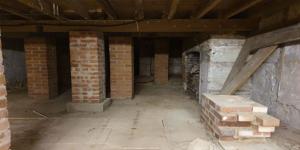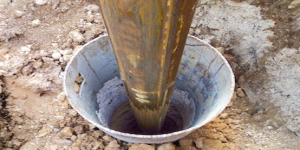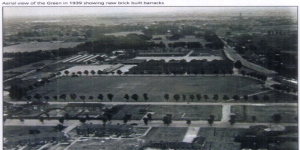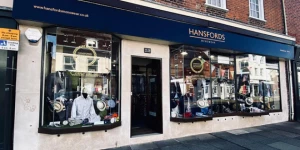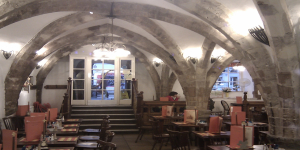***
To the west of the Lavant Road, Warren Farm consisted of 67 acres
bounded to the north by Lavant Common, and to the south by Brandy Hole
Lane. The Ecclesiastical Commissioners, having taken the land over in
January 1870, sold it freehold a few months later to Robert Dendy, a local
banker, for £1,137.7s. He revitalised the farm and completed a period of re-
building by the early 1880s when the farm had to support six families.
The farm changed hands twice through widow Matilda Bagot in 1882 and
Charles Ormerod, who inherited when Matilda died in 1889, before Henry
Halsted bought it in 1894. Halsted was the owner of a local ironmongers,
and iron and brass foundry in South Pallant. He died in 1911 followed by his
wife Margaret in 1919.
The farm was auctioned in October 1919 but remained unsold. The 1920s
was still not a good time for farming, but Chichester was expanding and
there was demand for good quality housing. The property was divided into
individual but generous building plots along the Lavant Road, Brandy Hole
Lane, Warren Farm Lane, and what became known as Hunters Way. The
Warren, its drive, buildings, grounds and Warren Lodge were excluded, as
were fields on either side of the Chichester-Midhurst railway. The building
plots, all with the same Restrictive Covenants, were sold off in the 1920s
and 30s. (Stride’s plots on the other side of the Lavant Road, with similar
covenants, were sold a few years earlier).
***
In the 1860s, the Chichester to Midhurst railway was planned to cross under
Brandy Hole Lane and bisect Warren Farm on its way to Lavant, Midhurst
and Haslemere. It was to be a ‘contractors’ line, built by a group of
speculators for sale to an established railway company. The first sod was
turned by Lord Henry Lennox (MP for Chichester) in April 1865, but the
Haslemere section was officially abandoned in 1868. Financial and legal
wrangles continued to create severe delays and a second Parliamentary Bill
5
Random articles of interest
Featured in Chichester Observer
27 East street
MB
My mum worked 27 east street and when it flooded in the 90s they found a big cellar and you could look down into an area which was like a tunnel
whyke lodge
peterborough tunnels
One of the most common questions I’m asked about Peterborough’s history is whether there are any tunnels under the city. Local legends say that there is a tunnel stretching from the Cathedral to Monk’s Cave at Longthorpe. Similar tunnels are alleged to stretch from the Cathedral to the abbeys at Thorney or Crowland.
These are familiar myths in many historic cities across the UK, mostly urban legends based on half remembrances of sewers, cellars or crawlspaces, coupled with wishful thinking and rumour.
The stories of tunnels from Peterborough to
Graylingwell plan with well and springs ponds
Graylingwell plan with well and springs ponds.
The Punch house
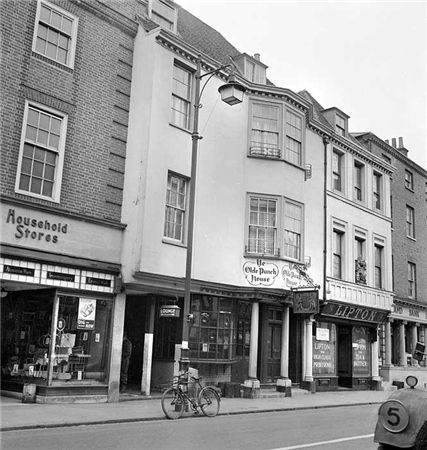
ON THE south side of East Street, close to the Market Cross, lies number 92 which up until fairly recently was The Royal Arms public house (also known as Ye Olde Punch House).
Although the façade dates to the Georgian era, the building is of a timber-framed construction said to date from the 16th century.
Much of the original building survives including highly decorated plaster ceilings displaying the Tudor Rose and fleur-de-lis.
It was once a private town house belonging to the Lumley family of Stansted.
where are the tunnels?

Are you curious about the tunnels in Chichester? If you are, you are not alone. Many people have wondered about the existence and purpose of these underground passages that are said to run under the city. Some claim they have seen them, others have heard stories about them, but what is the truth behind the mystery?
In this blog post, I will try to shed some light on the tunnels in Chichester, based on some web searches and historical sources. I will also share some of the rumours and legends that surround them, and invite you to share your own experiences or opinions in the comments section.
What are the tunnels in Chichester?
Chichester Culverts
We do not suggest going into the culverts.
These are not classified as tunnels and can be dangerous
video of culverts/storm drains/winterbourne route
Map of Chichester showing Rivers
www.streetmap.co.uk\\/map.srf?x=486359&y=104953&z=120&sv=chichester&st=3&tl=Map%20of%20Chichester%2C%20West%20Sussex%20[City%2FLarge%20Town]&searchp=ids.srf&mapp=map.srf&fbclid=IwAR2IV7YUeQ8u_GBTHRE24fSpUvVRwu5CpZxdPt1fs_injtw73WMxXbTQ25s
researching properties using the council planning system
An introduction to researching properties
